Guide to Searching for Stories in Arc XP
Searching in Composer
The Search Bar
From the Composer home screen, your main entry point into search is our top search bar. From this search bar, you can opt to search stories by term or ID using the top toggle. A search by ID will look for the exact story ID match of your input text, querying the field ‘source.source_id’.
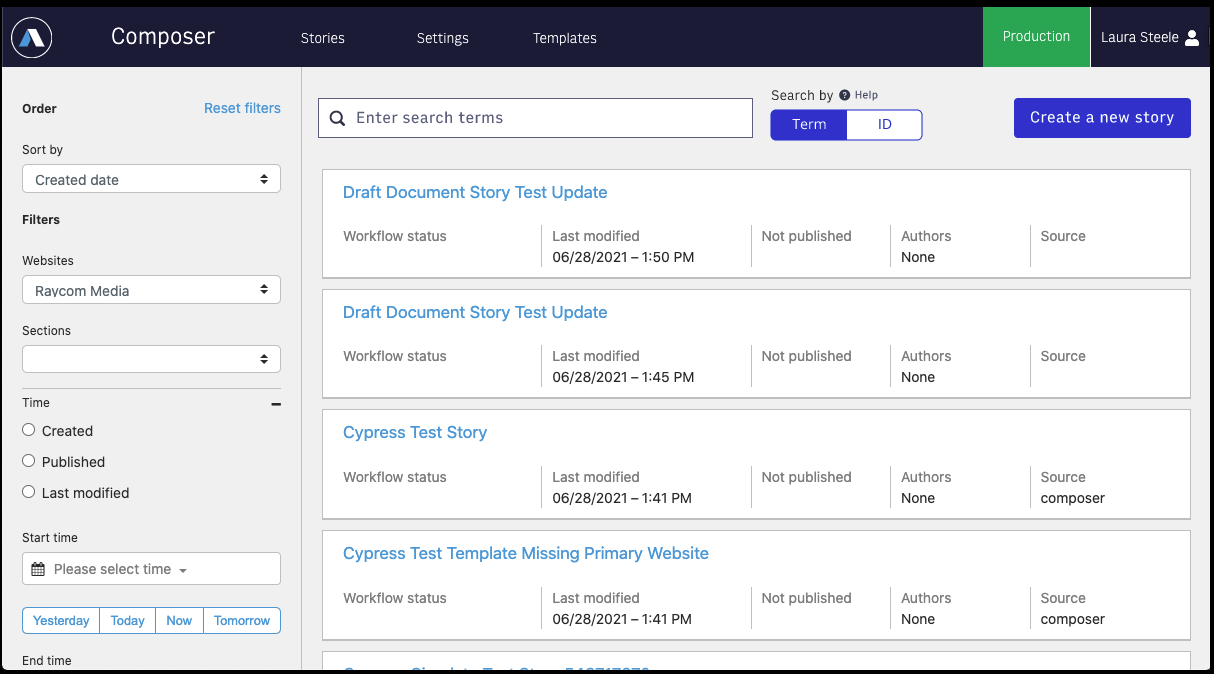 |
Troubleshooting Tip: If you ever encounter a search error where stories in Composer do not load, you can always still access and edit stories if you search by ID.
When you run a search by term, this will search for your terms in the headline and body of the article, among other fields detailed below. When typing multiple words in this search box, it will behave as an OR search. This means the results will display every story that matches one of the typed words. For example, if we type “breaking news”, the result will show both stories that match “breaking” or stories that match “news”. Our search does not currently support boolean operators or wildcard searches. For a complete list of the properties queried in the Composer search bar, see “How To Use Composer Search.”
Search Sort
You can sort and filter all content within Composer using the left pane. You can use these filters independently of the top search bar, but when combined with searching by term in the top search bar you can very effectively narrow down your search results.
The Composer search sort and filters are sticky, meaning that we will remember your search parameters even if you navigate away or log out of Arc. You can always clear your filters by clicking “Reset filters” at the top of the pane.
Sort Order
“Sort by” gives you the option to reorder your results by created date, last updated date, publish date, display date, or relevance.
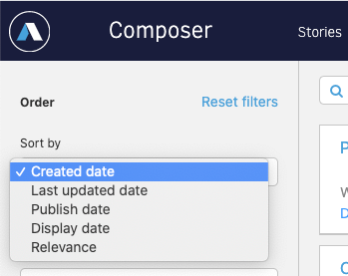 |
Search Filters
Websites and Sections
Search by website or section. If you are a single-site organization, then you will not see the websites filter.
Time
Allows you to set a start date and end date to your search results. This range may then be filtered by Created, Published or Last Modified. Use the relative date buttons for a quick access to the recent past or next day.
Filter and search a specific field
At the bottom of the filter pane, we give you the ability to filter within specific fields to drill down directly to the content you’re looking for.
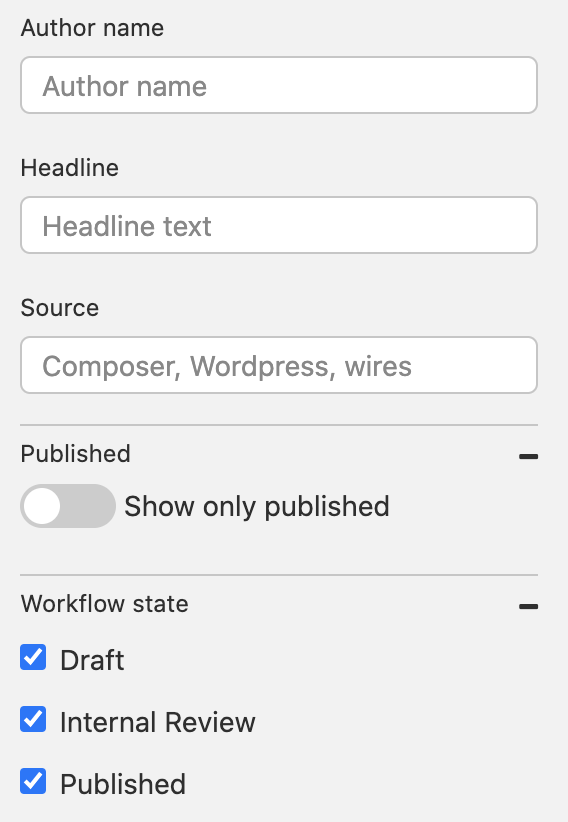 |
Author Name - Look for articles from authors in your author service list or guest authors.
Headline - Only searches the headline field of the article.
Source - How the article was originally added to the publishing pipeline, whether through Composer, an ingested wire feed or another CMS in your pipeline.
Subtype - Filter by rendering template.
Show only published - Ability to hide unpublished content.
Workflow states - Filter by your custom workflow states by toggling them on or off.
Tip
For the Workflow states to appear, you must have the WebSked integration enabled. You can verify this setting within Composer Settings > WebSked.
Searching in WebSked
WebSked provides a hub for all content moving through the publishing pipeline, and therefore it’s a great place to search for multiple types of content including stories, galleries, and videos. Keep in mind that by default, WebSked orders the results by WebSked Date, which uses the following logic:
Is the content published? If yes, use Publish date. If not, go to step 2.
Is the content scheduled to be published? If yes, use the Scheduled date. If not, continue to step 3.
Use the Planned ready time of the content. The Planned ready time lets you set a date in the future when the content is expected to be ready to publish.
If content does not have any of these dates, it falls into the To Be Determined category that can be exposed through the toggle under End Date.
To search within WebSked, start by clicking Planning then List view links at the top of the page. Then:
Enter your search terms into the search box.
Use the Direction drop-down menu to change the search from chronological to reverse-chronological (most recent first).
Set the date range for your results.
WebSked defaults to showing content when the WebSked Date is later than midnight last night.
Search for older content by moving the Start Time to an earlier date.
Change the search results to Relevance based.
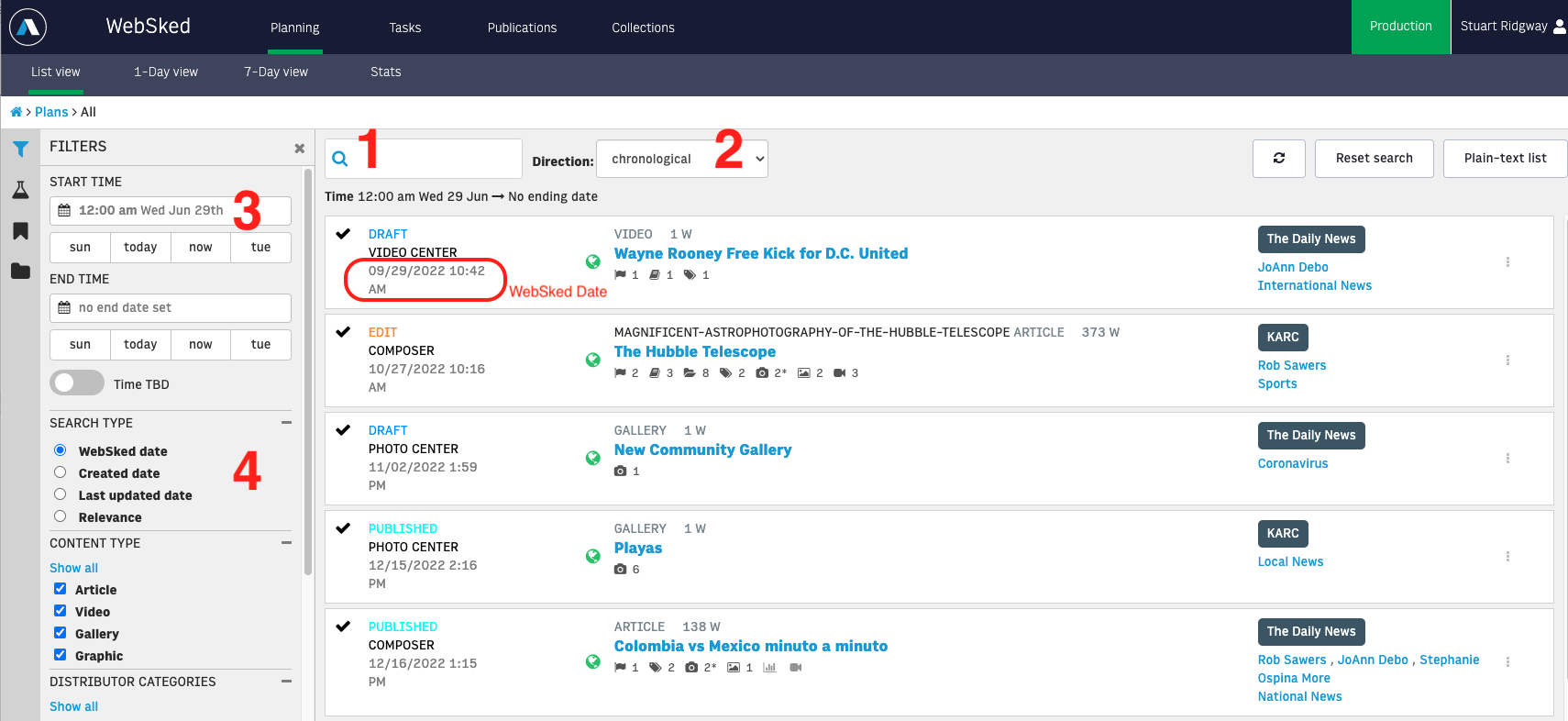 |
When searching in WebSked, you can use quotation marks for searching for a phrase. However, at this time, WebSked does not support Boolean operators (OR, AND, NOT, and so on).
Advanced search
For advanced searching, click the beaker icon along the left to open the Advanced tab. Using the Advanced Search option enables you to enter specific details to search on (options are shown in image). For example, this is helpful when looking for a specific story that you know the slug or headline for.
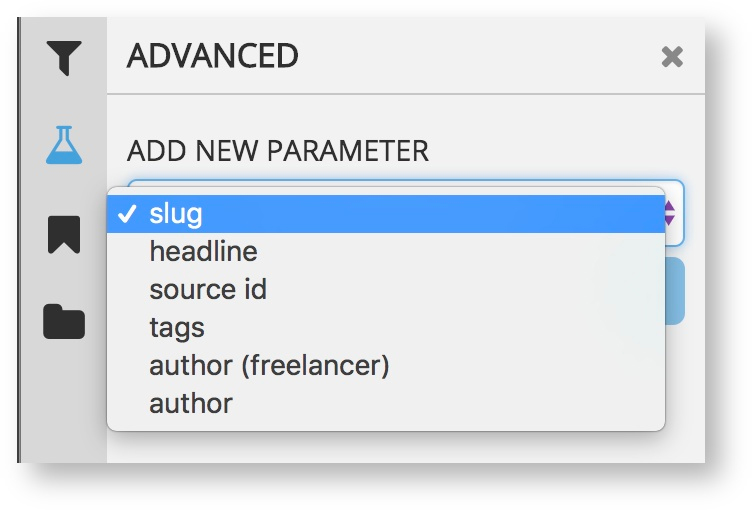 |
Saved searches
Saved searches allow you to quickly repeat any search you perform frequently. After you have the parameters of your search in place, select the bookmark icon on the left to open the Saved Search menu and click new saved search. The saved search inherits the parameters that you are currently using to search the content. When you are happy with your search parameters, name your search, click save, and that search saves on your local version of WebSked.
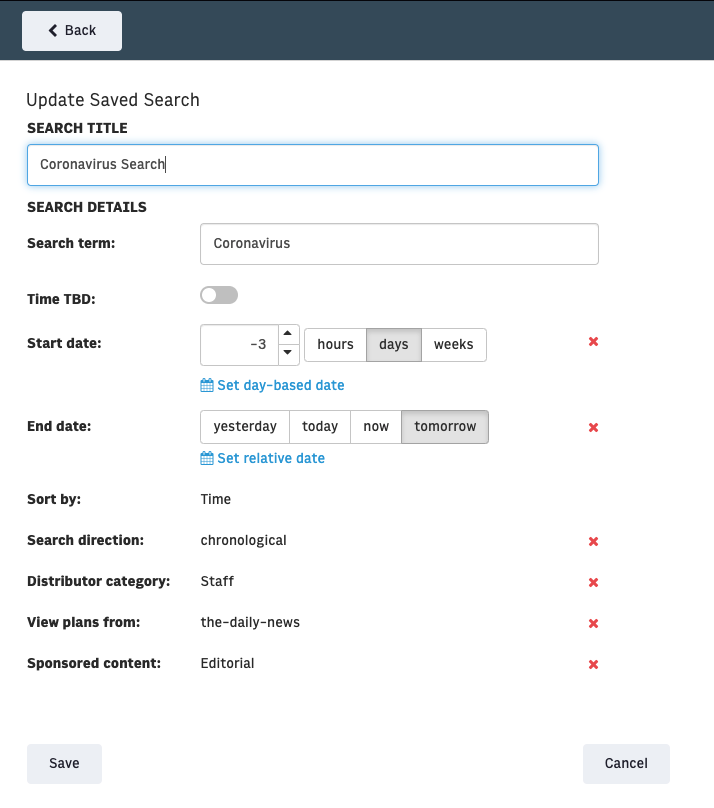 |
 |